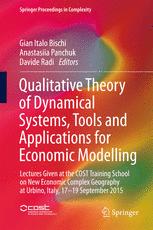

Most ebook files are in PDF format, so you can easily read them using various software such as Foxit Reader or directly on the Google Chrome browser.
Some ebook files are released by publishers in other formats such as .awz, .mobi, .epub, .fb2, etc. You may need to install specific software to read these formats on mobile/PC, such as Calibre.
Please read the tutorial at this link: https://ebookbell.com/faq
We offer FREE conversion to the popular formats you request; however, this may take some time. Therefore, right after payment, please email us, and we will try to provide the service as quickly as possible.
For some exceptional file formats or broken links (if any), please refrain from opening any disputes. Instead, email us first, and we will try to assist within a maximum of 6 hours.
EbookBell Team

0.0
0 reviewsThe book presents the lectures delivered during a short course held at Urbino University in summer 2015 on qualitative theory of dynamical systems, included in the activities of the COST Action IS1104 “The EU in the new economic complex geography: models, tools and policy evaluation”. It provides a basic introduction to dynamical systems and optimal control both in continuous and discrete time, as well as some numerical methods and applications in economic modelling.
Economic and social systems are intrinsically dynamic, characterized by interdependence, nonlinearity and complexity, and these features can only be approached using a qualitative analysis based on the study of invariant sets (equilibrium points, limit cycles and more complex attractors, together with the boundaries of their basins of attraction), which requires a trade-off between analytical, geometrical and numerical methods. Even though the early steps of the qualitative theory of dynamical systems have been in continuous time models, in economic and social modelling discrete time is often used to describe event-driven (often decision-driven) evolving systems.
The book is written for Ph.D. and master’s students, post-doctoral fellows, and researchers in economics or sociology, and it only assumes a basic knowledge of calculus. However it also suggests some more advanced topics.